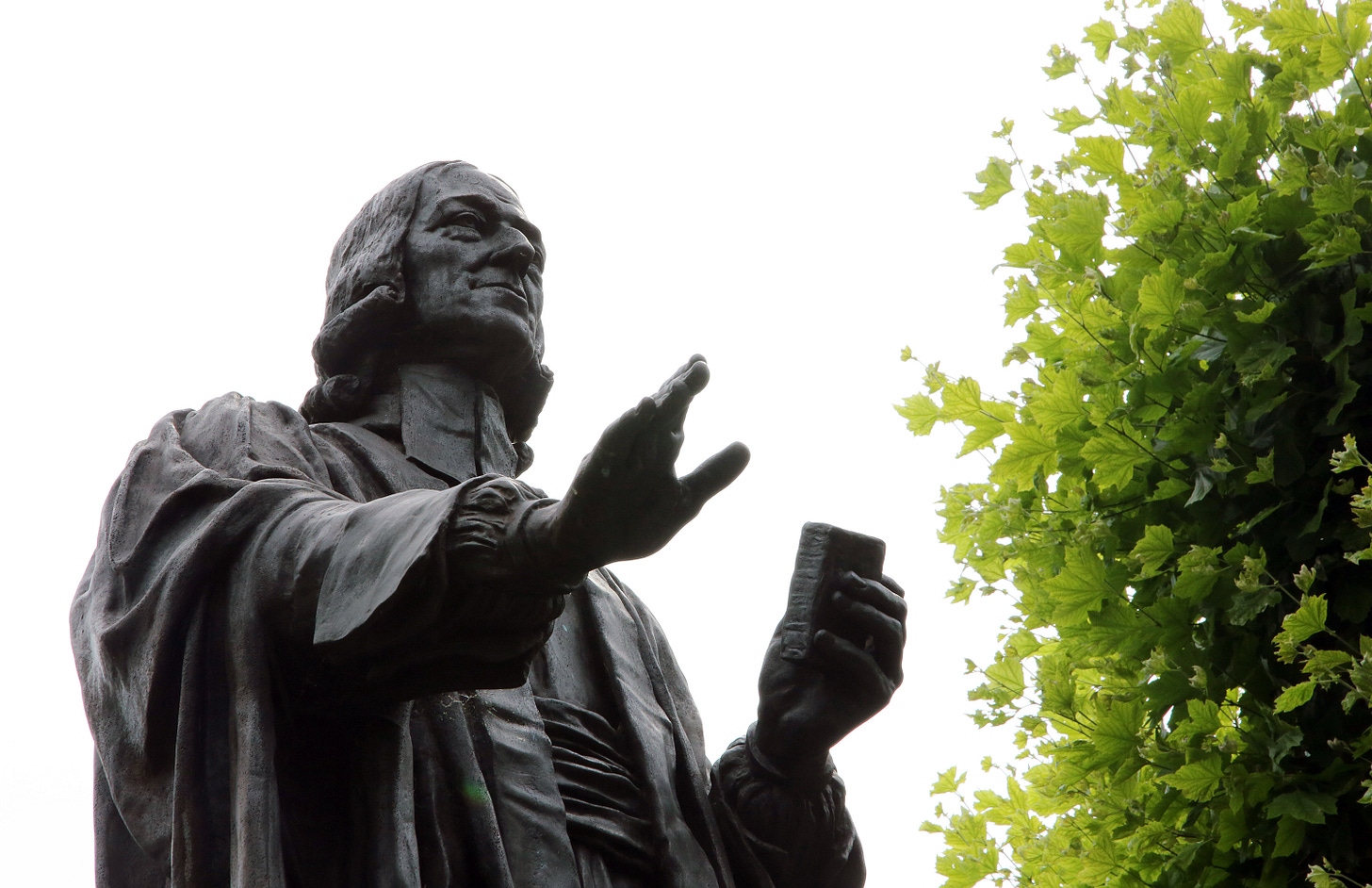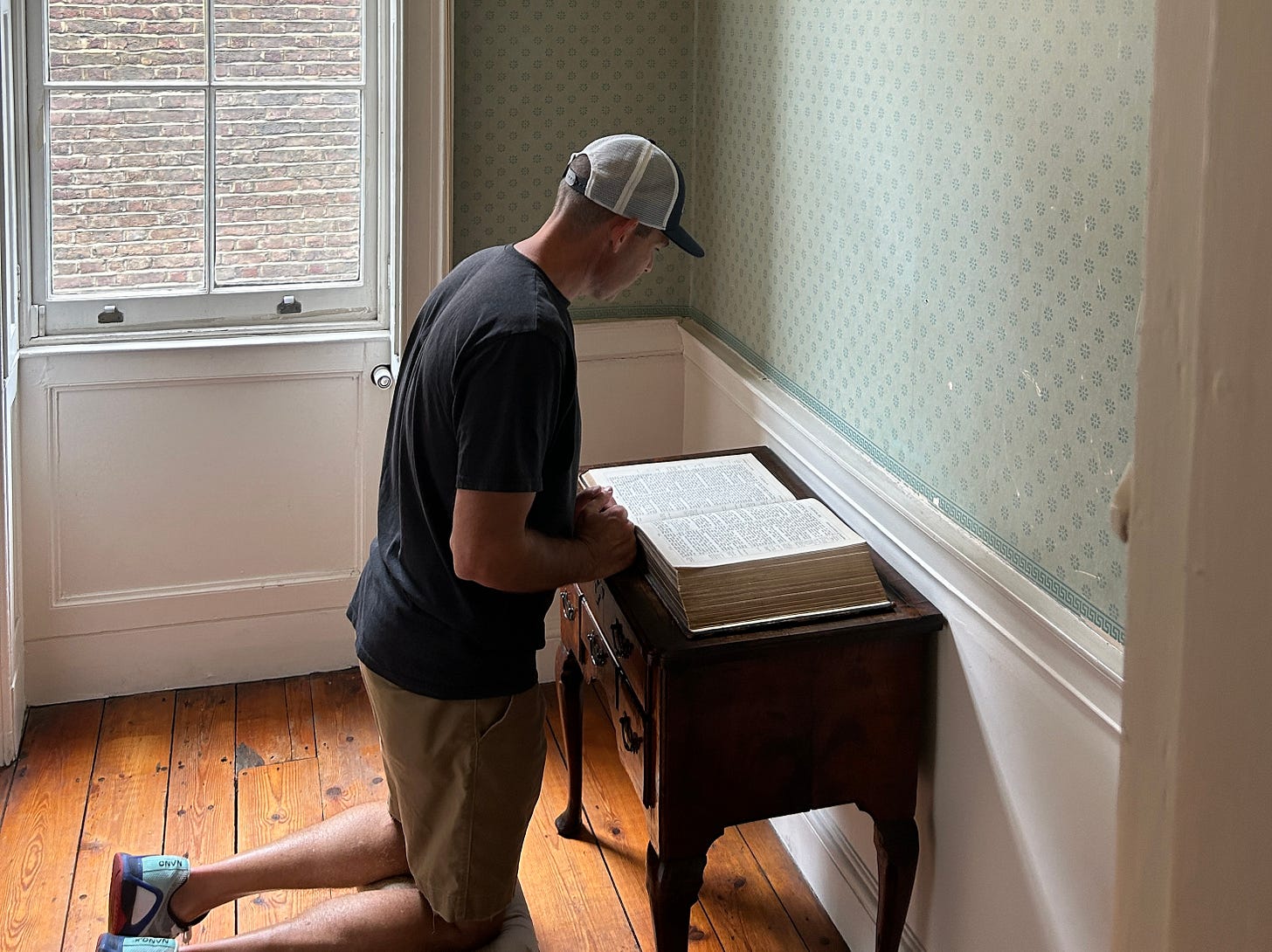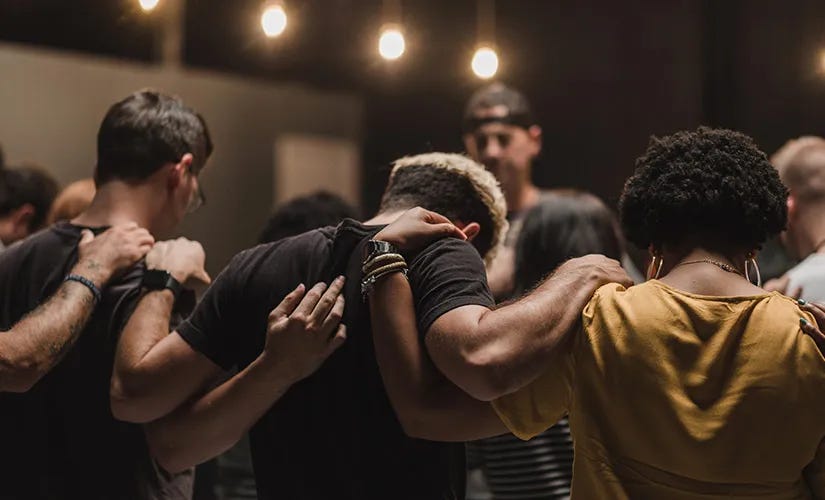Movements have come and gone throughout history, but true transformation begins with something far deeper than tactics and strategies; it begins with Jesus. In a world where movements often become ends in themselves, Jesus remains the constant foundation. His life and teachings have fueled every lasting change in the world, and spiritual disciplines such as prayer, fasting, and confession are crucial. Jesus has always been at the forefront of movement.
This begs the question, “Are we more focused on movements, or is our focus on Jesus?”
John and Charles Wesley and the early Methodists didn’t seek to create a movement. Instead, they desired to live holy lives and return to the simplicity of following Jesus.
Inspired by early church fathers like Clemens Romanus, Ignatius, and Polycarp, they focused on reclaiming the ancient truth that transformation comes through following Him. True kingdom movements aren’t the result of tactics, strategies, programs, or training.
They’re about lives surrendered to Jesus and empowered by the Holy Spirit. Wesley’s vision was to revive what he called “true Christianity,” sparking spiritual and social renewal within the Church of England. Despite resistance, he remained deeply committed to renewal from within while reaching beyond the church walls.
The Early Methodist Movement
For Wesley, what sparked the movement was a series of personal encounters with the Holy Spirit, all within one year’s time. His interaction with the Moravians profoundly shaped his understanding of faith and the Spirit's role in a believer’s life. On May 24, 1738, he had a “heart-warming” experience at Aldersgate that was transformative for his life and ministry. Seven months later, he was at a New Year’s watch night at a Fetter Lane society meeting that may have proved even more impactful. Wesley writes,
“Mr. Hall, Kinchin, Ingham, [George] Whitefield, Hutchings, and my brother Charles were present at our love feast in Fetter Lane with about sixty of our brethren. About three in the morning, as we were continuing instant (continually) in prayer, the power of God came mightily upon us, insomuch that many cried out for exceeding joy, and many fell to the ground.”
George Whitefield, twenty-four at the time, wrote regarding the Fetter Lane meeting.
“It was a Pentecostal moment indeed. Sometimes whole nights after were spent in prayer. Often have we been filled with new wine. And often have I seen people overwhelmed with the Divine Presence.”
Wesley’s Aldersgate experience, combined with his Fetter Lane encounter with the Holy Spirit, paved the way for a third important moment in his life and ministry. Less than one year after Aldersgate, Wesley began preaching in the fields.
It's easy to focus on the work of the ministry through field preaching, but this development came only after years of wrestling with the Spirit. Aldersgate and Fetter Lane were a gift of God poured out on a man seeking Jesus.
The spiritual practices of Wesley then sustained his work. Key to the Methodist societies was adherence to spiritual disciplines like Scripture reading, the Lord’s Supper, prayer, fasting, and Christian community. Wesley considered fasting an essential spiritual discipline for Christian growth and sanctification.
In his sermon Upon Our Lord's Sermon on the Mount, Discourse Seven, Wesley explained from Matthew 6:16 that fasting was not optional but expected in the believer’s life.
Wesley fasted every Friday of his adult life. He believed it was crucial for the soul’s purification and the earnestness of prayer.
In fact, Wesley counseled regular fasting not only for the leadership of his societies but also for new and even immature Christians! He also implored his circuit riders, local pastors, and other class leaders to rise early in the morning to spend an hour in prayer, and all leaders were required to confess their sins to one another in band meetings.
On a recent trip to England, we visited John Wesley’s residence near the Foundry, where he constructed a simple room with little more than a kneeling bench and the Bible. It was in this prayer closet that Wesley did his most meaningful work on his knees (see below picture).
Leaders were required to fast weekly and pray an hour a day, and all leaders were required to confess sin to one another in band meetings. The early Methodists were not chasing a movement; they were chasing after Jesus, and he rewarded their desire for Him.
Losing Pillar 1
Over time, the movement slowed, the passion faded, and the spiritual disciplines waned. As the Wesleyan movement crossed the Atlantic, regular confession of sin through band meetings became more infrequent as greater focus was placed on forming class meetings and societies. Decades later, the Sunday School movement would become the primary focus of Methodism.
The passion for prayer and fasting that defined the movement's early years eventually died. The Methodist Church became upwardly mobile, and contending with the Holy Spirit was replaced by a refined religiosity and focus on other concerns, namely the organization of the movement.
Whenever movements lose sight of their first love and begin to focus more on personalities, buildings, budgets, and secondary things, the results are predictable.
This brings us to today and the modern Wesleyan Church.
What might John and Charles Wesley have said to each of us? One hallmark of those early days was a high standard of commitment to spiritual disciplines and the work of the ministry. Every member was required to fast weekly, pray daily, and confess sin to one another through a weekly band meeting. If we could somehow bring John and Charles Wesley back from the grave to examine the state of our current Wesleyan pastors, how many would stand up under their scrutiny? How many might be dismissed from their office?
When was the last time you fasted for an entire day or longer? If it’s been longer than a few weeks, you would have been reprimanded by Wesley. How often do you rise early in the morning to spend an hour in prayer? If that’s not your regular spiritual discipline, you may have been disqualified from leadership by Wesley. Do you regularly meet with other believers to confess your sins to one another? If it hadn’t happened recently, you may have been put on probation.
In our modern era, this all sounds very legalistic, but Wesley understood the power of spiritual disciplines and had high expectations of every believer, especially the leaders of the movement.
Restoring Pillar 1
A movement is sparked not by strategies or programs but by people embodying the teachings of Jesus and seeking after Him. The early Methodist movement exemplified this. As we reflect on the past and our role in today’s world, we must ask: Whose authority shapes our lives? Are we part of a movement genuinely rooted in Jesus, or are we caught up in the machinery of the movement itself? Being part of a kingdom movement means joining a community of disciples committed to seeking Him in all things.
Here are a few questions for self-reflection.
What spiritual practices can you adopt to stay connected to the Holy Spirit?
How might you lead others in these same practices?
How can you deepen your connection with Jesus through earnest prayer, mutual accountability, worship, and fasting?
What steps can you take to align your life more fully with the ways of Jesus?
Are you willing to commit to fasting once a week, to an hour of prayer each day, and to mutual accountability as you seek God's face?
What would it be like if the entire church committed to the same?
What incredible changes might occur in our churches, communities, and denominations if we embraced these practices wholeheartedly?
At the center of it all is Jesus Christ, who remains the same yesterday, today, and forever. He calls us to follow Him, to learn from Him, and to live as God's people. Movements will come and go, but true transformation happens when followers stay focused on Jesus. In God’s kingdom, the only enduring movement is the one that remains centered on Him. Will you join us as we seek the face of God?
G.K. Chesterton once noted, “Christianity has not been tried and found wanting; it has been found difficult and not tried.”
This is our challenge today. Rather than seeking movement, let’s seek Jesus with all our hearts. If we do, God might bless us as a denomination and church.
If we don’t, let’s stop talking about becoming a movement again.
Signed,
Jeremy Summers, Billy Wilson, Dwight Nash, Matt LeRoy, Jon Wiest, Jervie Windom, Christy Lipscomb, Meredith Griffin, & Mike Wilson
If you want to stay informed about future articles, hit the Subscribe button below and share this with other pastors and leaders in The Wesleyan Church.







I think one of the keys to how the Wesleys pursuing Jesus tends to differ from ours is that theirs was practiced in community (bands, etc.) and they encouraged each other / held each other accountable for staying in these rhythms. Reflecting the democratization of American Christianity, our practice of the various spiritual disciplines seems to be relatively private and inconsistent (I speak foremost for myself). There was something beautiful and powerful about their raw, authentic,communal pursuit of Jesus. I'm not sure we have the guts to do it that way.
Some of us have set aside Wednesdays for some extra fasting and prayer for our tribe. We’d love to have you join us.